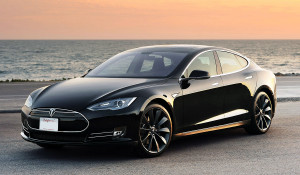Self-Driving Cars: The Legal Impact
By Daniel E DAngelo Esq on September 29, 2015
“I think it’s just going to become normal. Like an elevator.”
-Elon Musk
You wake up, stretch, and prepare for a hot, leisurely shower. You’ve got time. Rushing to get ready for work and scrambling for your keys and other essentials is a thing of the past. There’s no skipping breakfast anymore either, you’ve got plenty of time for that as well. Driving through traffic simply isn’t the ordeal it used to be. In fact, you don’t have to drive at all. A car is going to be to your house to pick you up at a prearranged time, guaranteed to get you to work without any issues. While you’re en route, you may have some work to catch up on, or you might need some extra sleep. Or perhaps you’re dying to continue your gaming from the night before. This may sound like a distant, utopian future, but it could be reality sooner than you think.
If you are not already familiar with Elon Musk, you will be in the near future. Musk is currently the CEO of Tesla, a revolutionary automobile manufacturer. In this instance, Musk was referring to autonomous or self-driving car. He’s not alone in his prediction about these vehicles. Many of the leading tech industry giants are on the same page.
Most agree that it’s not a matter of if, but when for self-driving cars. Tech leaders that aren’t traditional participants in the auto industry have big plans. Google is one of them, and the company has been working on driverless cars for many years now. The company has been testing the cars for several years now, and has made quite bit of headway. There’s a handy FAQ about the program right here.
The implications of self-driving cars are wide reaching. Will it mean we never have to take control of our cars again? Will we even own our own cars in the future?
Things like DUIs and drowsy driving incidents can realistically be cut to almost nil if these cars deliver as promised. Some experts in the field have predicted the introduction of self-driving cars to the market is as close as 2020. FIVE YEARS. People heavily involved in the research and planning for the next step in automobiles believe it is as close as that to being introduced to the market.
Of course there are issues, and the 2020 predictions generally include cars that use one or a few of the many “self-driving features” while not meaning truly autonomous vehicles. One of the greatest barriers to autonomous, driverless vehicles on the roadways are governmental and insurance regulations and concerns. The safety of driverless cars is probably not going to be an issue; the examples on the road right now are incredibly deft and are only involved in collisions when there is a human element involved.
As we know however, people are sometimes slow to come around to new concepts and ideas, even when the data supports it. There are sure to be plenty of people who fear the technology no matter how safe it’s proven, and others who simply enjoy the sense of being in control when they drive. Both of these are speedbumps along the way, and autonomous cars will likely dominate our roadways sometime in the near future.
You may notice a recurring theme on the D’Angelo blog. Though we are a personal injury law firm, we believe in making our streets and highways safer for pedestrians, bicyclists, and motorists, and like to highlight new technologies meant to further roadway safety.
Although these technologies hold the promise of reducing injuries to zero, due to human error or product error, the ubiquity of these technologies is many years away. We anticipate that personal injuries will unfortunately continue for the foreseeable future. When those injuries occur on Colorado roadways, we are here to help accident victims recover for their injuries.



